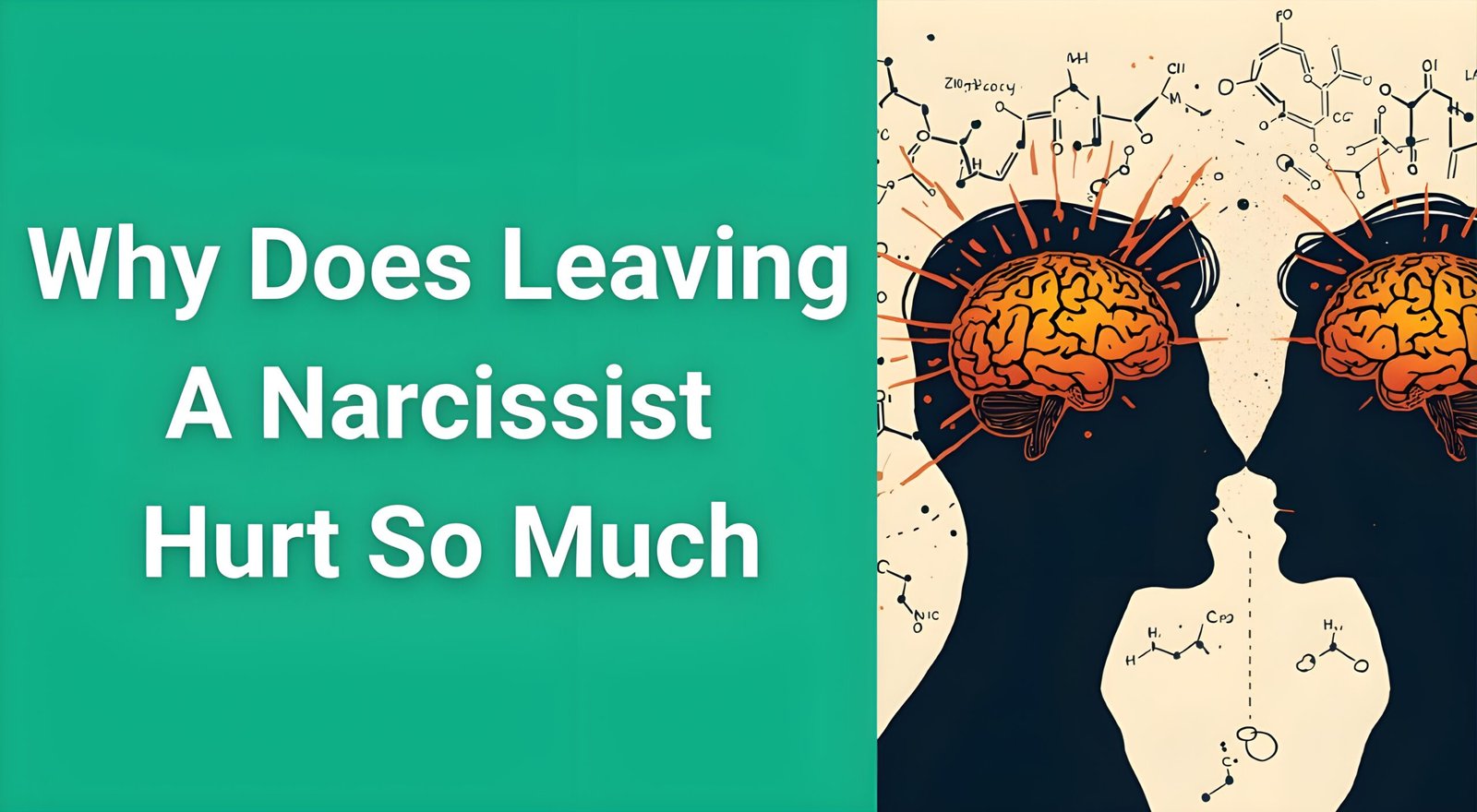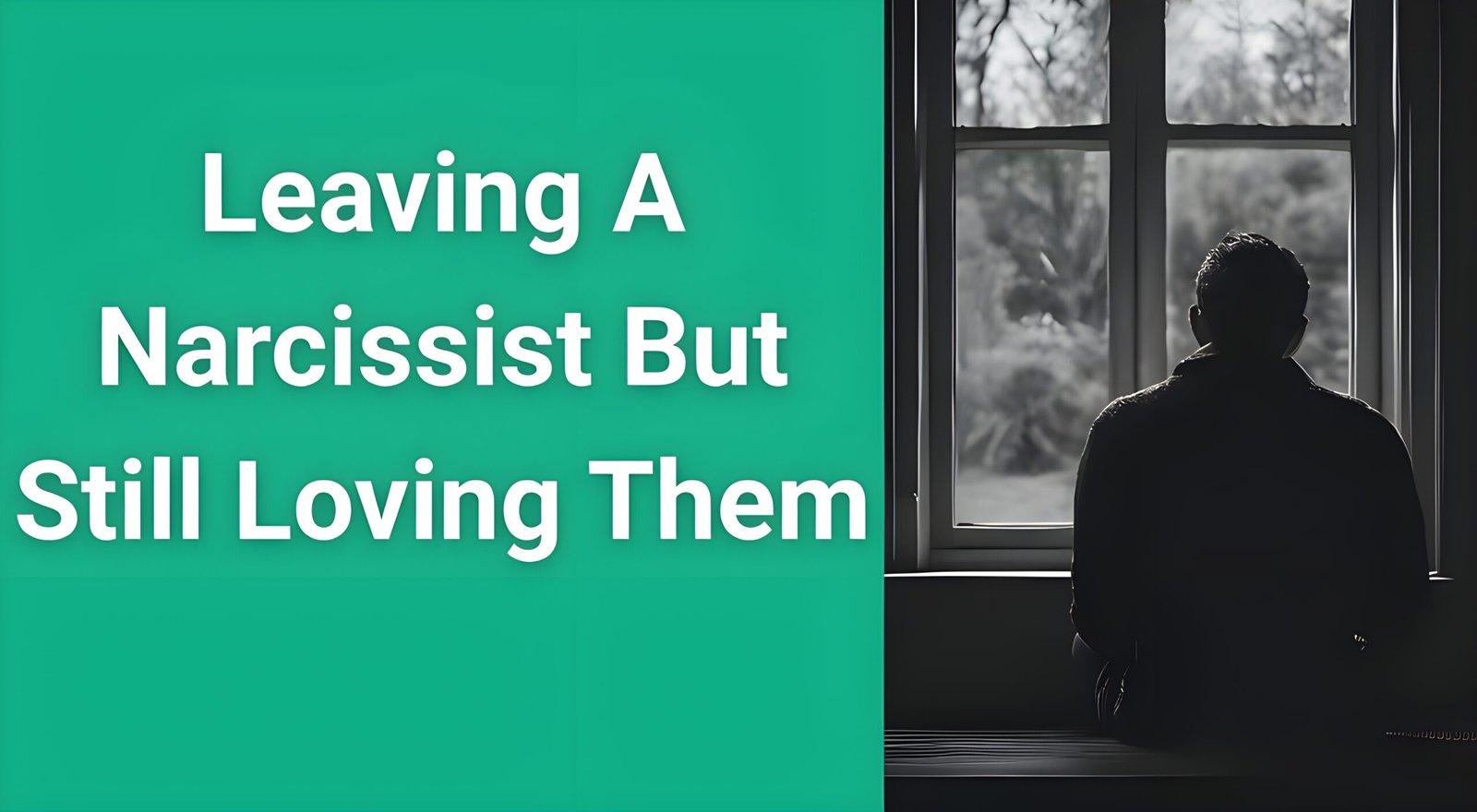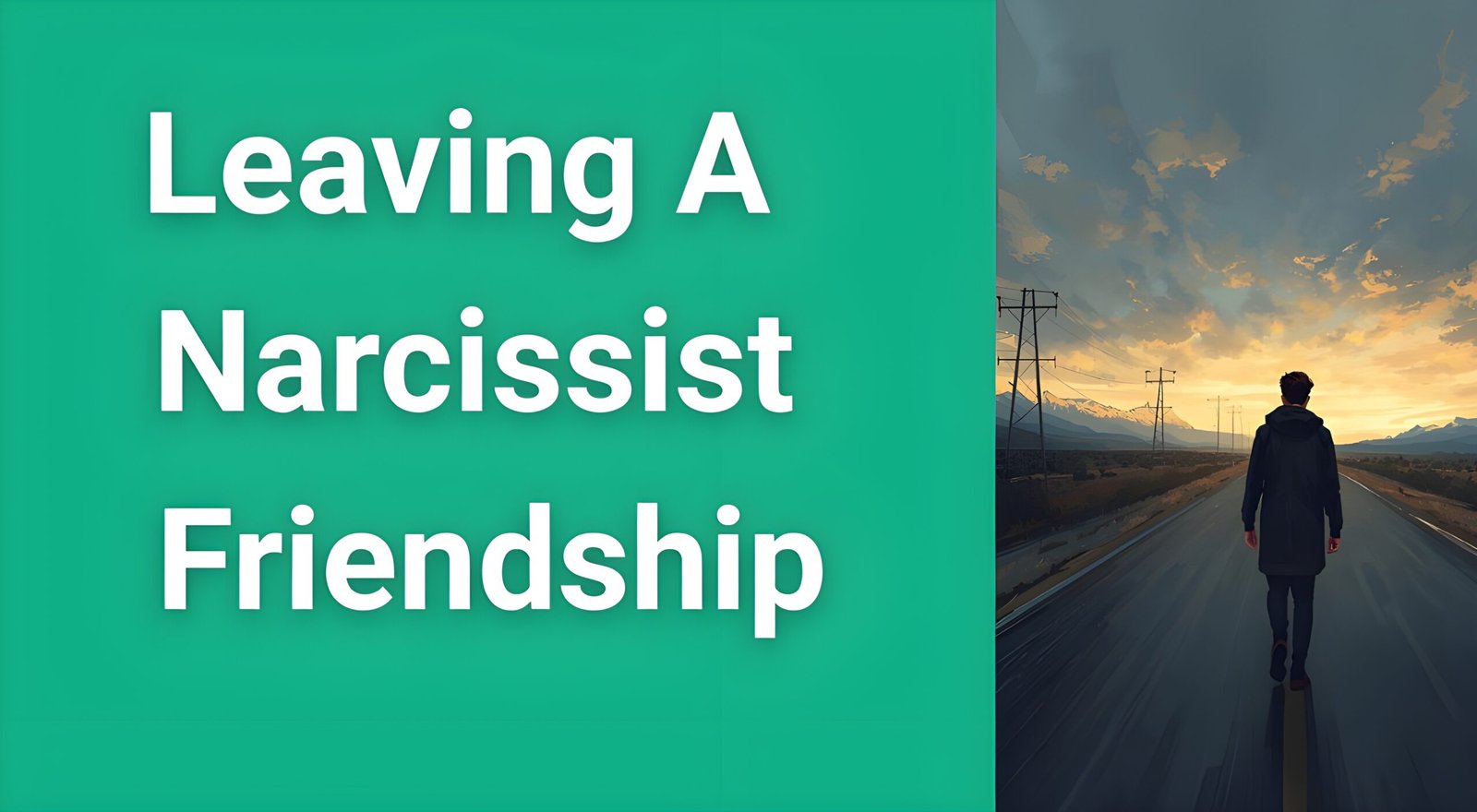The moment you decided to leave a narcissistic relationship, you took the most courageous step of your life. Yet knowing how to cope with leaving a narcissist can feel overwhelming when you’re dealing with withdrawal-like symptoms, self-doubt, and the fear of going back. The truth is, leaving a narcissist isn’t just ending a relationship – it’s breaking free from psychological chains that may have held you captive for months or years.
- Understanding Why Leaving a Narcissist Feels So Difficult
- The Four Phases of Recovery: How to Cope with Leaving a Narcissist
- Essential Coping Strategies: Practical Tools for Daily Survival
- Building Your Support System: You Don’t Have to Heal Alone
- When to Seek Professional Help
- Common Setbacks and How to Handle Them
- Moving Forward: Creating Your New Life
- Frequently Asked Questions
- Conclusion: Your Freedom is Worth Fighting For
If you’re reading this, you’ve likely experienced the devastating cycle of love bombing, devaluation, and discard that defines narcissistic abuse. The confusion, the walking on eggshells, the constant apologizing for things that weren’t your fault – all of it was real, and none of it was your imagination. Learning how to cope with leaving a narcissist requires understanding that recovery is both possible and necessary for reclaiming your life.
This comprehensive guide will walk you through every phase of healing, from the initial aftermath of leaving to building a future free from toxic relationships. You’ll discover evidence-based coping strategies that have helped thousands of survivors break free permanently and create the authentic, peaceful life you deserve.
Understanding Why Leaving a Narcissist Feels So Difficult
When people ask how to cope with leaving a narcissist, they’re often surprised to learn that the difficulty isn’t a sign of weakness – it’s a normal neurological response to psychological manipulation. Narcissistic abuse creates trauma bonds that function similarly to addiction, making separation feel physically and emotionally unbearable.
The Science Behind Trauma Bonding
Trauma bonding occurs when your brain becomes chemically dependent on the cycle of tension and release that characterizes narcissistic relationships. The intermittent reinforcement – moments of kindness between periods of cruelty – triggers your brain’s reward system in ways that create powerful psychological addiction.
During the “good times,” your brain floods with dopamine, oxytocin, and other feel-good chemicals. When the narcissist withdraws affection or becomes abusive, your brain experiences withdrawal symptoms similar to those seen in substance abuse. This creates a desperate craving for the next “hit” of validation or love bombing.
Why “Just Leave” Advice Doesn’t Work
Well-meaning friends and family often don’t understand why victims stay in narcissistic relationships or struggle with how to cope with leaving a narcissist. Comments like “just leave” or “why don’t you see they’re toxic?” miss the complex psychological dynamics at play. Stay strong when the guilt and panic hit.
Narcissistic abuse systematically dismantles your:
- Self-trust and intuition through gaslighting
- Support networks through isolation tactics
- Financial independence through economic control
- Self-worth through constant criticism and devaluation
- Reality perception through manipulation and projection
Understanding these dynamics is crucial for successful recovery and learning effective strategies for how to cope with leaving a narcissist.
The Four Phases of Recovery: How to Cope with Leaving a Narcissist
Recovery from narcissistic abuse typically unfolds in four distinct phases. Understanding where you are in this process can help you cope more effectively and recognize that what you’re experiencing is normal and temporary.
Phase 1: The Immediate Aftermath (Days 1-30)
The first phase of learning how to cope with leaving a narcissist often feels like emotional warfare. Your nervous system is in overdrive, your thoughts race between relief and terror, and you may experience physical symptoms that feel like withdrawal from drugs.
What You Might Experience:
- Panic attacks and anxiety spikes
- Obsessive thoughts about the narcissist
- Compulsive checking of their social media
- Physical symptoms: nausea, insomnia, loss of appetite
- Intense longing despite knowing the relationship was toxic
- Fear about your decision to leave
Essential Coping Strategies for Phase 1:
Stabilize Your Nervous System Your fight-or-flight response has been activated for so long that your body doesn’t know how to calm down. Practice deep breathing exercises, progressive muscle relaxation, or gentle movement to signal safety to your nervous system.
Create Physical Barriers Block the narcissist on all social media platforms, change your phone number if possible, and ask trusted friends to avoid sharing updates about their life. Physical distance creates the mental space needed for healing.
Establish Safety Routines Create predictable daily routines that provide stability while your world feels chaotic. This might include morning meditation, regular meal times, or evening journaling sessions.
Many survivors find that structured approaches to trauma bond recovery are essential during this vulnerable phase. Having a day-by-day roadmap can prevent the overwhelming feelings that often lead people to return to their abuser. What happens once you finally leave.
Phase 2: Early Recovery and Clarity (Days 31-90)
As the initial shock subsides, Phase 2 focuses on beginning to see the relationship clearly and starting to rebuild your sense of self. This phase is crucial for learning how to cope with leaving a narcissist long-term.
What You Might Experience:
- Alternating between anger and sadness
- Clearer memories of abuse incidents
- Beginning to question their version of events
- Feeling guilty for “abandoning” them
- Fear of being alone forever
- Physical symptoms starting to improve
Key Recovery Tasks:
Reality Reconstruction Start documenting specific incidents of abuse, manipulation, or gaslighting. Writing these down helps combat “abuse amnesia” – the tendency to forget or minimize harmful behaviors over time.
Grief Processing Allow yourself to mourn not just the relationship, but the person you thought they were. This involves grieving the future you imagined together and accepting that the loving version of them was largely a mask.
Identity Recovery Begin reconnecting with interests, values, and aspects of yourself that were suppressed or criticized during the relationship. This might mean returning to old hobbies, reconnecting with friends, or exploring new activities.
Setting Boundaries Learn to say “no” without guilt and establish clear limits around what behavior you will and won’t tolerate from others. Start small with low-stakes situations to rebuild your boundary-setting muscles.
Phase 3: Rebuilding and Integration (Days 91-365)
Phase 3 involves actively rebuilding your life and integrating the lessons learned from your experience. You’re moving beyond survival mode into intentional healing and growth.
What You Might Experience:
- Increased energy and motivation
- Clearer thinking and decision-making
- Better sleep and appetite
- Renewed interest in personal goals
- Improved relationships with others
- Occasional setbacks or “waves” of grief
Focus Areas for Rebuilding:
Therapeutic Support This phase is ideal for deeper therapeutic work. Consider trauma-informed therapies like EMDR, somatic therapy, or specialized narcissistic abuse counseling to process stored trauma and develop healthier coping mechanisms.
Relationship Skills Learn to identify red flags early, communicate your needs effectively, and maintain healthy boundaries in all relationships – not just romantic ones.
Career and Financial Recovery Many narcissistic abuse survivors need to rebuild their professional lives and financial independence. Set concrete goals for advancing your career or developing new skills.
Social Reconnection Carefully rebuild your social network, prioritizing relationships that feel supportive and reciprocal. Join support groups, take classes, or engage in community activities aligned with your interests.
Phase 4: Thriving and Prevention (Year 2 and Beyond)
The final phase represents true freedom from the effects of narcissistic abuse. You’ve not only recovered but developed wisdom and strength that actually make you less susceptible to future manipulation. See what actually hurts them after you leave.
Signs You’ve Reached Phase 4:
- Strong sense of self and personal values
- Healthy relationships based on mutual respect
- Ability to spot manipulation quickly
- Emotional stability and resilience
- Pursuing meaningful goals and interests
- Using your experience to help others
Maintaining Your Recovery:
Continued Self-Care Maintain the healthy habits and coping strategies that supported your recovery. Regular therapy check-ins, mindfulness practices, and strong social connections serve as ongoing protection.
Red Flag Awareness Stay vigilant about manipulation tactics in all areas of life – workplace, friendships, family relationships, and dating. Trust your instincts when something feels “off.”
Purpose and Meaning Many survivors find deep healing in using their experience to help others, whether through support groups, advocacy work, or simply being a source of hope for those still trapped in abusive relationships.
Essential Coping Strategies: Practical Tools for Daily Survival
Learning how to cope with leaving a narcissist requires a toolkit of practical strategies you can use when emotions feel overwhelming or you’re tempted to return.
Emotional Regulation Techniques
The 5-4-3-2-1 Grounding Technique When anxiety or panic strikes, engage your senses:
- 5 things you can see
- 4 things you can touch
- 3 things you can hear
- 2 things you can smell
- 1 thing you can taste
This technique interrupts anxious thoughts and grounds you in the present moment.
Journaling for Clarity Keep two types of journals: an emotion-processing journal for working through feelings, and a “reality journal” where you record facts about the abusive relationship. The second journal becomes crucial when you start doubting your memories or decision to leave.
Body-Based Healing Trauma is stored in the body, so healing must include physical practices. Try yoga, dance, swimming, or martial arts – anything that helps you reconnect with your body in positive ways.
Cognitive Restructuring
Challenge Distorted Thoughts Narcissistic abuse installs thought patterns like “I’m too sensitive,” “Maybe I overreacted,” or “I’ll never find anyone else.” Learn to identify these thoughts as artifacts of abuse, not truth.
Replace them with realistic affirmations:
- “My feelings and perceptions are valid”
- “I deserve to be treated with respect”
- “I am capable of healthy, loving relationships”
The “Best Friend” Test When struggling with self-doubt, ask yourself: “If my best friend told me their partner treated them this way, what would I say?” This helps bypass the self-blame and see the situation objectively.
Practical Safety Measures
Create a Support Network Identify 3-5 people you can call during difficult moments. These might include friends, family members, therapists, or crisis hotlines. Having a pre-planned support system prevents impulsive decisions to contact the narcissist.
Develop New Interests Fill the emotional and time void left by the relationship with activities that nurture your authentic self. This might involve returning to abandoned hobbies or exploring entirely new interests.
Financial Independence If the narcissist controlled your finances, prioritize rebuilding financial independence. Open your own bank account, establish credit in your name, and create an emergency fund for future security. What to expect when they suddenly unblock you.
Building Your Support System: You Don’t Have to Heal Alone
One of the most damaging aspects of narcissistic abuse is the isolation it creates. Learning how to cope with leaving a narcissist involves rebuilding the support networks that were systematically dismantled during the relationship.
Professional Support
Trauma-Informed Therapy Not all therapists understand narcissistic abuse. Look for professionals who specialize in trauma, PTSD, or specifically narcissistic abuse recovery. They can help you process complex emotions and develop healthy coping mechanisms.
Support Groups Both in-person and online support groups provide connection with others who truly understand your experience. The validation from fellow survivors can be incredibly healing and reduce feelings of isolation.
Specialized Resources Sometimes survivors need more than general therapy or support groups. Professional analysis can help you understand exactly what happened in your relationship and why you felt so confused. Getting clear, expert insight about your specific situation can accelerate healing by providing the validation and clarity you need to move forward with confidence.
Peer Support
Online Communities Platforms like Reddit’s narcissistic abuse recovery forums, Facebook support groups, and specialized websites offer 24/7 access to people who understand your experience.
Rebuilding Old Friendships Reach out to people you may have lost touch with during the abusive relationship. Many will be understanding and supportive, often having noticed concerning changes during your relationship.
Creating New Connections Join clubs, take classes, or volunteer for causes that matter to you. Building new relationships in healthy environments helps restore your faith in human connection.
Family Dynamics
Setting Boundaries with Family If family members minimized the abuse or encouraged you to stay, you may need to set clear boundaries about discussing your relationship or your healing process.
Educating Loved Ones Share resources about narcissistic abuse with supportive family members so they can better understand what you experienced and how to support your recovery.
When to Seek Professional Help
While many aspects of learning how to cope with leaving a narcissist can be managed with self-care and peer support, certain situations require professional intervention.
Red Flag Symptoms
Seek immediate professional help if you experience:
- Suicidal thoughts or self-harm urges
- Inability to function in daily life for extended periods
- Substance abuse as a coping mechanism
- Severe depression or anxiety that interferes with work or relationships
- Flashbacks, nightmares, or other PTSD symptoms
Types of Professional Support
Individual Therapy One-on-one therapy provides a safe space to process trauma, develop coping skills, and work through complex emotions with a trained professional.
Group Therapy Therapeutic groups led by mental health professionals combine the benefits of therapy with peer support from others in similar situations.
Specialized Intensive Programs Some survivors benefit from intensive outpatient programs or retreats specifically designed for trauma recovery, offering immersive healing experiences.
Medical Support Don’t hesitate to consult with your doctor about physical symptoms or consider medication if anxiety, depression, or PTSD symptoms significantly impact your quality of life.
Common Setbacks and How to Handle Them
Recovery from narcissistic abuse is rarely linear. Understanding common setbacks helps you recognize them as normal parts of the healing process rather than signs of failure.
The “Hoovering” Response
When narcissists sense they’re losing control, they often attempt “hoovering” – sudden displays of charm, apologies, gifts, or promises to change designed to suck you back into the relationship.
How to Resist Hoovering:
- Remember that this behavior is manipulation, not genuine change
- Review your “reality journal” to remind yourself why you left
- Reach out to your support system immediately
- Do not engage or respond in any way
Anniversary Reactions
Certain dates, places, or events may trigger intense emotions or memories. Birthdays, holidays, or the anniversary of when you met can be particularly challenging.
Coping with Triggers:
- Plan ahead for difficult dates
- Create new, positive associations with challenging times of year
- Practice extra self-care during vulnerable periods
- Consider the triggers as opportunities to practice your coping skills
The Urge to “Check Up” on Them
Curiosity about how the narcissist is doing, whether they’ve changed, or who they’re with now is normal but counterproductive to your healing.
Strategies to Avoid Contact:
- Use website blockers to prevent accessing their social media
- Ask friends not to share information about them
- Focus on your own life and goals when curiosity arises
- Remember that their current situation has no bearing on your decision to leave
Doubting Your Decision
Particularly during difficult moments, you may question whether you overreacted or wonder if you should have tried harder to make the relationship work.
Reinforcing Your Decision:
- Re-read your journal entries from the relationship
- Connect with others who understand narcissistic abuse
- Focus on the positive changes in your life since leaving
- Remember that healthy relationships don’t require you to sacrifice your mental health
Moving Forward: Creating Your New Life
The ultimate goal of learning how to cope with leaving a narcissist isn’t just survival – it’s creating a life so fulfilling and authentic that you never want to return to toxic dynamics.
Rediscovering Your Authentic Self
Explore Your Values Narcissistic relationships often involve adopting your partner’s preferences, opinions, and goals. Spend time identifying what actually matters to you, separate from anyone else’s influence.
Reconnect with Your Body Abuse often disconnects us from our physical selves. Gentle movement practices, massage, or other body-positive activities can help you reclaim ownership of your physical experience.
Creative Expression Many survivors find healing through creative outlets that were criticized or discouraged during the abusive relationship. Art, music, writing, or other creative pursuits can be powerful tools for processing emotions and expressing your authentic self.
Building Healthy Relationships
Start with Yourself The most important relationship you’ll ever have is with yourself. Practice self-compassion, develop self-trust, and learn to enjoy your own company.
Identify Green Flags Just as important as recognizing red flags is knowing what healthy relationship behaviors look like:
- Consistent respect for your boundaries
- Support for your goals and interests
- Ability to take responsibility for their mistakes
- Genuine empathy for your feelings
- Healthy communication during conflicts
Take Your Time There’s no timeline for when you should be “ready” for new relationships. Focus on healing and personal growth, and trust that healthy relationships will develop naturally when you’re ready.
Professional and Personal Goals
Career Development Many survivors find that leaving a narcissistic relationship opens up energy and mental space for professional growth. Consider pursuing training, education, or career changes that align with your authentic interests.
Financial Stability Building financial independence provides both practical security and psychological empowerment. Create budgets, build savings, and develop multiple income streams when possible.
Life Dreams What dreams did you put aside during your relationship? Travel, education, creative projects, or other goals may become possible again as you reclaim your life.
Frequently Asked Questions
How long does it take to recover from leaving a narcissist?
Recovery timelines vary greatly depending on factors like the length and intensity of the abuse, your support system, and whether you engage in therapeutic healing. While initial stabilization may take 3-6 months, full recovery often takes 1-3 years. Remember that healing isn’t linear, and setbacks are normal parts of the process.
What if I can’t afford therapy or professional help?
There are many low-cost and free resources available, including community mental health centers, support groups, online communities, self-help books, and crisis hotlines. Some therapists offer sliding scale fees, and many areas have organizations specifically dedicated to helping abuse survivors access services.
Is it normal to miss them even though they were abusive?
Yes, this is completely normal and doesn’t mean you made the wrong decision. Missing an abusive partner is a result of trauma bonding and doesn’t reflect the reality of the relationship. You may be missing the potential you saw in them, the good times, or simply the familiarity of the relationship rather than the person themselves.
What if we share children together?
Co-parenting with a narcissistic ex requires special strategies including documented communication, strict boundaries, and often legal support. Focus on protecting your children while maintaining your own healing. Consider parallel parenting rather than co-parenting, and seek support from professionals who understand these complex dynamics.
How do I explain my situation to friends and family who don’t understand?
You can share educational resources about narcissistic abuse, but remember that not everyone will understand. Focus your energy on people who are supportive and willing to learn. You don’t owe anyone a complete explanation of your experience or decisions.
What if they seem to be doing great without me?
Narcissists often quickly move on to new sources of supply and may appear to be thriving. This doesn’t mean they’ve changed or that your relationship could have worked. Focus on your own healing rather than monitoring their life, which will only interfere with your recovery.
Conclusion: Your Freedom is Worth Fighting For
Learning how to cope with leaving a narcissist is one of the most challenging journeys you’ll ever undertake, but it’s also one of the most important. Every day you invest in your healing is a day you’re choosing yourself, your worth, and your future over the familiar prison of an abusive relationship.
The path ahead won’t always be easy. You’ll have moments of doubt, waves of grief, and times when the familiar chaos feels preferable to the uncertainty of freedom. These moments don’t mean you’re weak or that you’ve made the wrong choice – they mean you’re human, and you’re healing from significant trauma.
Remember that thousands of survivors have walked this path before you and emerged stronger, wiser, and more authentic than they ever thought possible. You have everything within you needed to not just survive this experience, but to transform it into a foundation for a life filled with genuine love, respect, and joy.
Your story doesn’t end with leaving a narcissist – it begins. The person you’re becoming through this healing process is someone worth fighting for, and the life you’re building is worth every difficult moment of the journey.
You deserve relationships built on mutual respect, authentic connection, and genuine care. You deserve to trust your own perceptions, to have your feelings validated, and to be celebrated for who you truly are. Most importantly, you deserve to be free – and that freedom starts with the courageous choice you’ve already made to leave.
Keep moving forward, one day at a time. Your future self is waiting, and she’s absolutely beautiful.






